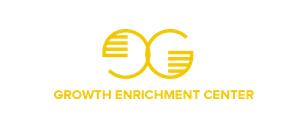
You can access your hidden resilience by shifting how you view and handle stress. Start by identifying your personal stress triggers with a stress journal, and incorporate mindfulness into your daily routine to strengthen your emotional stability. Improve your emotional intelligence to better navigate stressful situations and set clear, actionable goals to guide your growth. With these practical steps, you'll not only manage stress better but thrive in the face of it. More insights await on your journey to resilience.
Key Takeaways
- Shift your mindset to view stress as an opportunity for growth, enhancing your resilience.
- Regularly journal to identify and manage personal stress triggers effectively.
- Incorporate daily mindfulness practices to nurture resilience and maintain mental clarity.
- Develop emotional intelligence to better manage stress and strengthen interpersonal relationships.
- Set clear, achievable goals and regularly reflect on progress to foster personal growth.
Understanding the Impact of Stress on Resilience

While stress often feels like a barrier, it can actually serve as a powerful catalyst for resilience. Your perception of stress considerably impacts your ability to harness it.
When you view stressful situations as opportunities for growth, you're actively engaging in resilience building. This shift in mindset not only empowers you but also transforms challenges into stepping stones.
Embrace this perspective to propel your personal development forward. Remember, resilience isn't about avoiding stress; it's about learning how to thrive despite it.
Recognizing and Managing Personal Stress Triggers
Understanding the impact of stress on resilience sets the stage for the next vital step in your journey: recognizing and managing your personal stress triggers.
Start with stress journaling; it's a tool that lets you track what sets you off and how you react. This ongoing record boosts your trigger awareness, helping you spot patterns and pinpoint specific stressors.
Whether it's a high-pressure work environment, certain social situations, or even specific individuals, understanding your triggers empowers you to manage them more effectively.
Approach this exploration with self-compassion, acknowledging that growing your resilience is a personal and powerful journey.
Integrating Mindfulness Into Daily Routines

Integrating mindfulness into your daily routine can transform your approach to stress and enhance your overall well-being. Here's how you can start:
- Begin with Mindful Eating: Focus on the flavors and textures of your food, which can turn meals into a meditative practice.
- Gratitude Journaling: Spend a few minutes each morning or evening writing down what you're grateful for, enhancing positivity and resilience.
- Mindful Commutes: Use your travel time to observe your surroundings or listen to calming music, turning it into a rejuvenating experience.
- Evening Reflections: End your day with a few minutes of quiet reflection or meditation, settling your mind.
Embrace these practices to nurture your resilience daily!
The Role of Emotional Intelligence in Stress Management
Embracing emotional intelligence can revolutionize your approach to stress management. By enhancing your emotional awareness, you're better equipped to recognize and understand your feelings and those of others. This insight allows you to respond to stress more effectively.
Developing empathy helps you connect with others' experiences, providing support and gaining perspective that can alleviate your stress. As you nurture these skills, you'll find yourself more adept at handling day-to-day pressures with grace.
You'll not only manage stress better but also build stronger, more supportive relationships that enrich your life. Start this transformative journey today and witness its profound impact.
Setting Goals to Foster Personal Growth

Building upon your enhanced emotional intelligence, you can now effectively set and achieve personal growth goals.
Embrace a growth mindset, and let's break down the steps:
- Define Clear Goals: Establish what you specifically want to achieve for precise goal clarity.
- Break It Down: Split your main goal into manageable, actionable steps.
- Set Milestones: Create short-term targets that lead to your ultimate goal.
- Reflect and Adapt: Regularly assess your progress and adjust your strategies as needed.
With these strategies, you're not just dreaming; you're doing.
Forge ahead, shape your future, and watch as you transform challenges into stepping stones for success.
Harnessing the Power of Positive Affirmations
As you venture into the domain of positive affirmations, understand that these powerful statements can reshape your mindset and propel you towards personal success.
By incorporating an affirmations practice into your daily routine, you're not just fostering a positive mindset but actively participating in your mental reprogramming.
Each affirmation is a step toward viewing yourself and your capabilities in a new light.
"I am resilient," "I embrace challenges with ease," and "I grow with every experience" aren't just words; they're declarations of your commitment to self-improvement and a reflection of the strength that lies within you.
Embrace them fully.
Reflecting and Growing: The Path to Greater Resilience

Reflecting on your daily experiences provides a powerful foundation for personal growth and greater resilience.
This daily practice not only deepens your understanding of yourself but also enhances your ability to manage stress effectively.
Here's how you can start:
- Journal Daily: Capture your thoughts and feelings to recognize stress patterns.
- Practice Self-Compassion: Treat yourself with kindness during tough times.
- Implement Stress Management Techniques: Regularly use methods like deep breathing or mindfulness.
- Celebrate Small Wins: Acknowledge every step forward to boost your motivation.
Embrace these habits to strengthen your resilience and turn challenges into opportunities for growth.
Frequently Asked Questions
How Does Genetics Influence an Individual's Resilience to Stress?
Your genetic predisposition partially shapes your stress response, but remember, you've got the power to strengthen your resilience through mindful practices, learning, and personal growth. You're not just bound by your genes.
Can Nutritional Choices Impact Stress Management and Resilience?
Choosing the right foods at the right times can massively boost your resilience and manage stress like a pro. Nutrient timing and gut health play essential roles in enhancing your overall well-being.
What Role Does Physical Exercise Play in Building Resilience?
Physical exercise boosts your resilience greatly. Cardio benefits your heart health, while strength training enhances muscular endurance, both essential for stress management and overall well-being. Embrace these activities to fortify your resilience.
How Do Sleep Patterns Affect Resilience and Stress Handling?
Your sleep quality weaves the tapestry of your resilience, cradling stress recovery each night. By prioritizing restful sleep, you're equipping yourself to handle daily stresses more effectively and nurturing your inner strength.
Are There Specific Age-Related Differences in Stress Resilience?
Yes, different age groups often exhibit varied stress resilience. You'll find that coping strategies evolve with age, highlighting the importance of tailoring approaches to effectively manage stress throughout different stages of life.
Conclusion
You're not alone in this journey—did you know that 85% of what we worry about never happens? This statistic highlights the power of mastering stress management and resilience. By embracing mindfulness and setting clear goals, you've begun transforming fears into growth. Keep using positive affirmations and reflecting on your progress. Each step forward is shaping a stronger, more resilient you. Continue to nurture this incredible strength within; your potential is limitless. Keep thriving!

